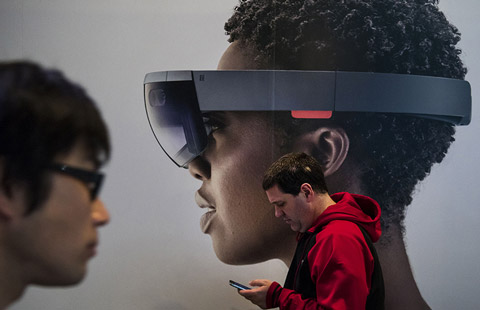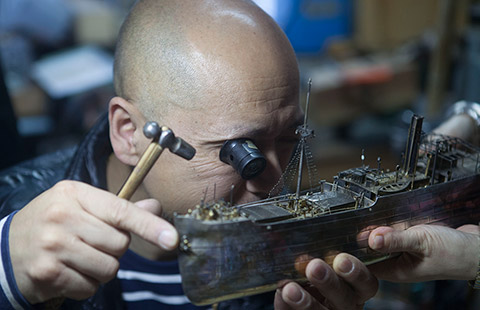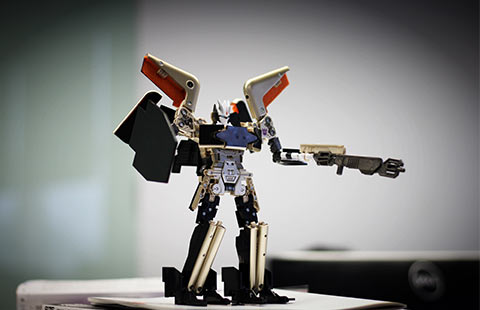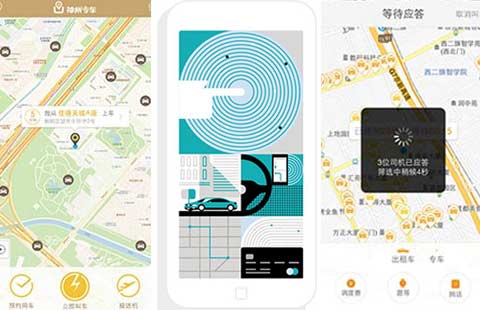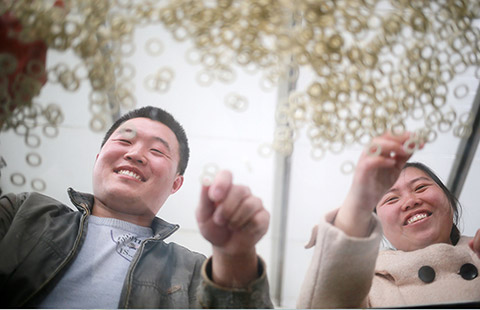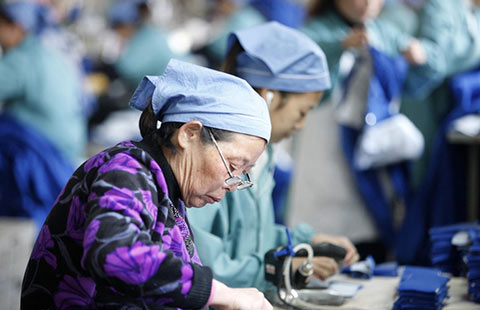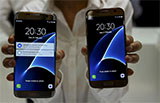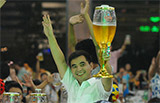Bosch Sensortec to focus on IoT and wearables
By WANG YING in Shanghai (China Daily) Updated: 2016-04-09 02:24The Internet of Things (IoT) and wearable consumer products will be key to Bosch Sensortec’s future developments, said Stefan Finkbeiner, CEO and general manager of Bosch Sensortec, at the recently concluded Electronica China 2016.
The Germany-based company, which is wholly-owned by Bosch, exhibited seven new products at the March 15-17 event, one of the leading trade shows for electronic components, systems and applications in the Asia-Pacific region. The offerings included vital sensor hubs, intelligent accelerometers, high performance gyroscopes and custom programmable 9-axis motion sensors.
The new sensors are designed specially for sensor-enabled wearable applications such as fitness wristbands, earphones and smart textiles, while the high-performance intelligent accelerometer can be used in areas such as gaming, immersive activity-tracking and applications for augmented reality, virtual reality and image stabilization.
"The vital sensor hubs would optimize the whole ecosystem of the current wearable industry and they would greatly facilitate Chinese manufacturers’ innovative capabilities and speed, providing them with more possibilities when developing new applications," said Yanick Yan, head of product marketing and business development at Greater China Bosch Sensortec.
Jeanne Forget, vice-president of global marketing with Bosch Sensortec, added that market demand for intelligent wearable products will reach 200 million by 2020, and the company will aim to meet the growing demands for micro-electro mechanical systems (MEMS) sensors that are required in such products.
Currently the world’s largest Internet economy with more than 700 million smart devices being used across the country, China is a key market for Bosch Sensortec. Market and consumer information agency GfK estimated that the Chinese consumer electronics market had hit $281 billion in 2015. Bosch’s research and development team in China is its second largest.
Stefan Finkbeiner, CEO and general manager of Bosch Sensortec, said that while the smart phone industry has been the locomotive for sensor and semiconductor innovation over the last 10 years, the technology pull will now be generated by new devices related to wearables and IoT applications, in turn creating a significant impact on system and sensor solution requirements.
According to Finkbeiner, Bosch’s global plants currently produce 4 million MEMS sensors for consumer electronics (75 percent) and automotive (25 percent) customers on a daily basis, and a total of 7 billion MEMS sensors have been manufactured and sold worldwide to date.
Deloitte estimated that 1 billion wireless IoT devices were shipped globally in 2015, up 60 percent from 2014, leading to an installed base of 2.8 billion devices. It also estimated that IoT-specific hardware is likely to be worth $10 billion and the associated services enabled by the devices worth about $70 billion.
- Forex reserve rise eases economy fears
- China's most expensive vacation can be booked April 25
- RMB internationalization a positive thing: former Fed heads
- Shanghai, Shenzhen see fall in housing market after new curbs
- Three Chinese stock exchanges among world's top five
- Momentum for asset-backed securities not strong: Official
- Fighting back: Self-defense classes in Tianjin
- Chinese firms bid to buy NY-listed Dangdang

